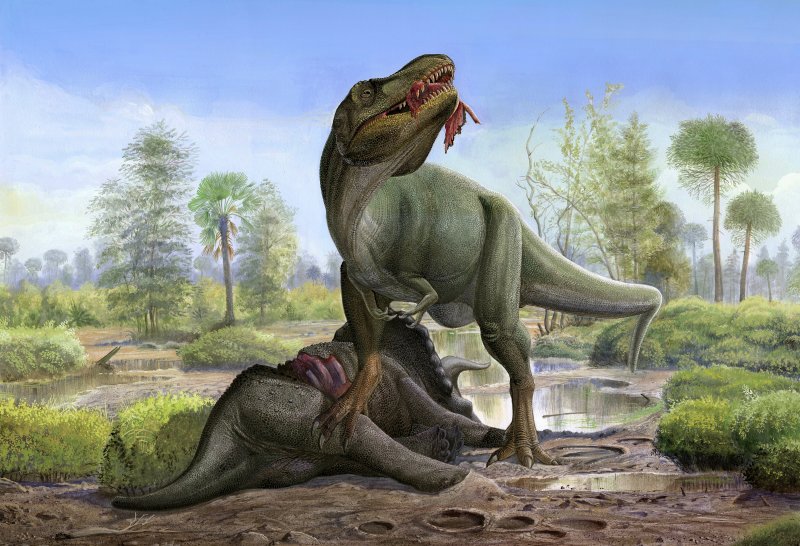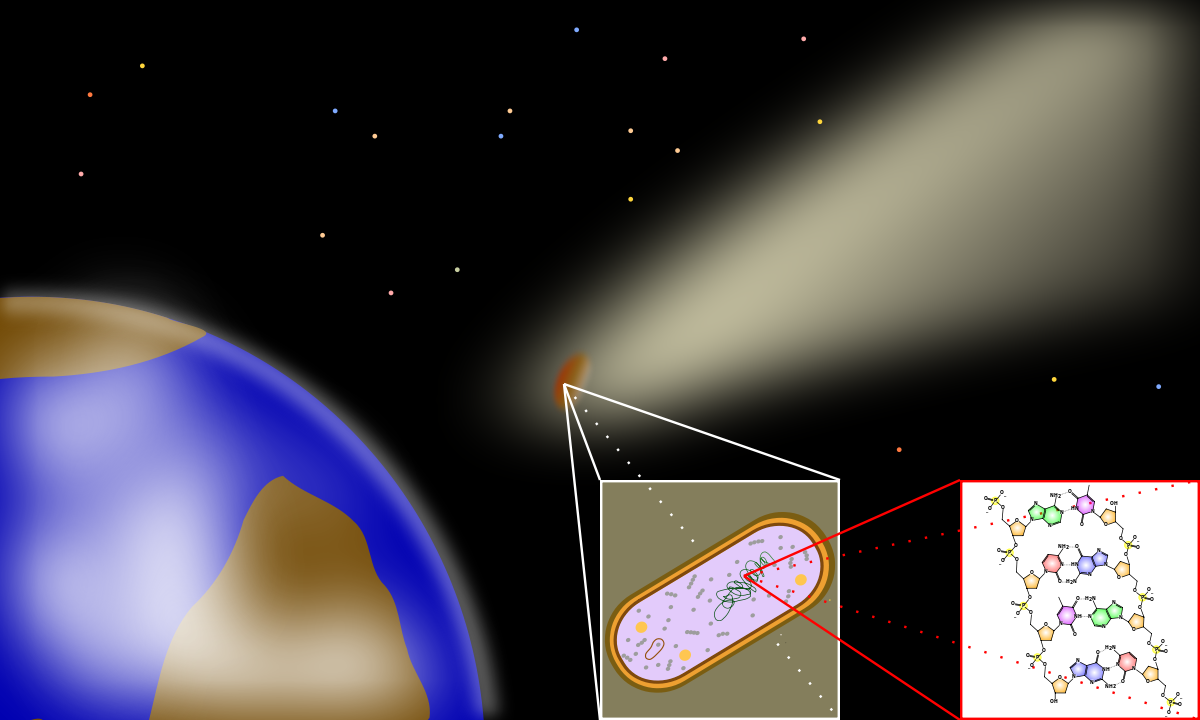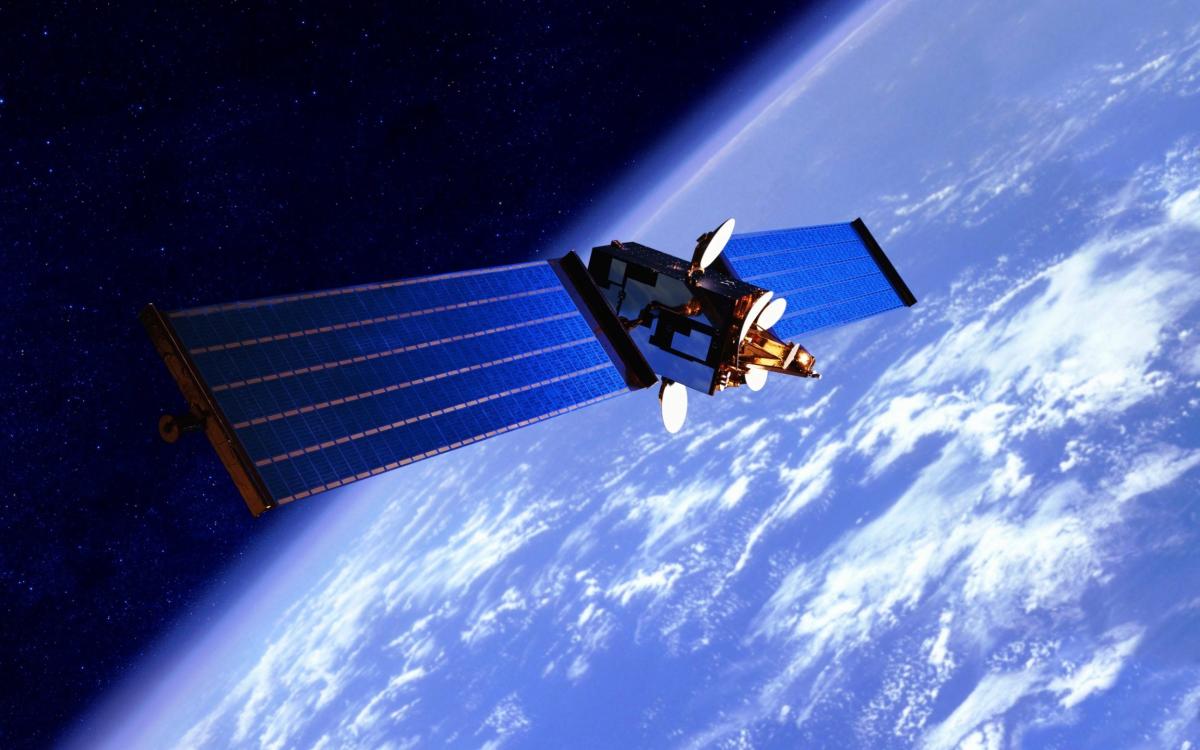- Joined
- Sep 30, 2019
- Messages
- 28,446
- Reaction score
- 33,274
- Gender
- Male
- Political Leaning
- Liberal
Chip shortage.Why aliens haven’t visited Earth yet
Chip shortage.Why aliens haven’t visited Earth yet
I'm just saying there's zero evidence chemical evolution, there's also zero evidence for spontaneous generation and panspermia.If life didn't spring up naturally some 4 billion years ago, how did occur.
Could be magic.What game designer are you talking about, your not referring to magic, are you.
Not even sure what this means.
I'm just saying there's zero evidence chemical evolution, there's also zero evidence for spontaneous generation and panspermia.
Turns out that life is a little more complicated than chemistry.
Could be magic.
Panspermia is another possibility that has been proposed and it is plausible. But if Panspermia was the actual reason for life on Earth, then the question becomes where did the transplanted life come from?It certainly doesn't lead that life sprang up naturally on planet earth - if that is the argument. That some amino acids can be created in an environment that we now believe likely didn't exist, in a glass beaker that has now been shown to taint the results, doesn't even really point the way. If Miller did in fact "lead there" then we wouldn't now be looking at the vent possibility, panspermia possibility, and a host of other possibilities.
For you.It's not that hard. Physical evidence never points to non physical causes, like a god.
Simple, as we have been told - women are from Venus, men are from Mars.Panspermia is another possibility that has been proposed and it is plausible. But if Panspermia was the actual reason for life on Earth, then the question becomes where did the transplanted life come from?
For you.
[Slaps forehead] of course! It's also obvious now,Simple, as we have been told - women are from Venus, men are from Mars.
Again, for you. You don't get to decide for me the cause of physical phenomena.No, in reality. It never happens. Not opinion, fact.
Again, for you. You don't get to decide for me the cause of physical phenomena.
Sorry.
You also don't get to determine what constitutes the boundaries of reality.No, in reality. Physical phenomena has physical causes. Every time. You or I don't have a say in this. There are not separate realities for everyone.
You also don't get to determine what constitutes the boundaries of reality.
My pastor does. Every Sunday he points skyward and says, "Put your faith and trust in JESUS! Do I have an amen?"It's not that hard. Physical evidence never points to non physical causes, like a god.
My pastor does. Every Sunday he points skyward and says, "Put your faith and trust in JESUS! Do I have an amen?"

Its not out of the question, Panspermia proposes that organisms such as bacteria, complete with their DNA, could be transported by means such as comets through space.Panspermia is another possibility that has been proposed and it is plausible. But if Panspermia was the actual reason for life on Earth, then the question becomes where did the transplanted life come from?

Actually we have .It sounds like, from this article, that the universe is predisposed towards evolving life, just not merging it on planetary scales.

There's a reason why aliens haven’t visited Earth yet, say scientists
The Fermi paradox questions why aliens have never visited Earth despite the Universe being so old and so vast that races should have evolved interstellar travel and come calling by now.news.yahoo.com
According to a new hypothesis posed by Dr Wong and Dr Bartlett: “We propose a new resolution to the Fermi paradox: civilizations either collapse from burnout or redirect themselves to prioritizing homeostasis, a state where cosmic expansion is no longer a goal, making them difficult to detect remotely.
“Either outcome — homeostatic awakening or civilization collapse — would be consistent with the observed absence of (galactic-wide) civilizations.”
The pair argue that the general principles of life are universal and that although the emergence and evolution of life on other planets remains speculative, it may be inevitable.
The ability to adapt to environmental changes is key to survival. And humans happened to use their brains to adapt and survive, causing our intellect to far surpass our fellow animals. Most animals use mostly their instincts and usually find homeostasis within the ecosystem, while humans have become too successful and overrun our environment. Advanced lifeforms may be a fluke of nature, explaining our seeming rarity.I agree, we're lucky to be here ..but for a fluke 6 mile wide asteroid bumped out of the asteroid belt some 66 million years ago ..we wouldn't be here.
Life in general has its limitations and IMO the natural evolution of life isn't necessary directed towards smarts but more in the direction of dog eat dog survival.
I know plenty of guys named Chip that they can have.Chip shortage.
All true IMHO, but we would not even be here but for 7 mile wide fluke asteroid travailing at 45,000 mph, An impact equivalent to a billion nuclear bombs.The ability to adapt to environmental changes is key to survival. And humans happened to use their brains to adapt and survive, causing our intellect to far surpass our fellow animals. Most animals use mostly their instincts and usually find homeostasis within the ecosystem, while humans have become too successful and overrun our environment. Advanced lifeforms may be a fluke of nature, explaining our seeming rarity.
All true IMHO, but we would not even be here but for 7 mile wide fluke asteroid travailing at 45,000 mph, An impact equivalent to a billion nuclear bombs.
A few mammals survived in there burrows, that's it. Minus the asteroid the dinosaurs would have continued to evolve and mammals would have stayed small under the giants feet.
It begs the question, what is the thrust of evolution. And your right IMO, humanity has become a plague not compatible with the balance nature.
For 400 plus billion years there was an equilibrium as it relates to life in general.That is because there is factually no such thing as a balance of nature.
The universe has as many stars as there are grains of sand on every beach on Earth. Try finding the one grain I marked as our sun if you dare.It sounds like, from this article, that the universe is predisposed towards evolving life, just not merging it on planetary scales.

There's a reason why aliens haven’t visited Earth yet, say scientists
The Fermi paradox questions why aliens have never visited Earth despite the Universe being so old and so vast that races should have evolved interstellar travel and come calling by now.news.yahoo.com
According to a new hypothesis posed by Dr Wong and Dr Bartlett: “We propose a new resolution to the Fermi paradox: civilizations either collapse from burnout or redirect themselves to prioritizing homeostasis, a state where cosmic expansion is no longer a goal, making them difficult to detect remotely.
“Either outcome — homeostatic awakening or civilization collapse — would be consistent with the observed absence of (galactic-wide) civilizations.”
The pair argue that the general principles of life are universal and that although the emergence and evolution of life on other planets remains speculative, it may be inevitable.
